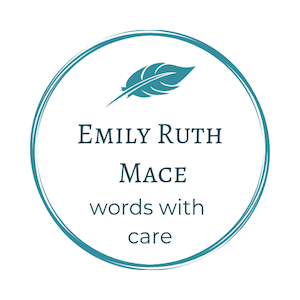This past weekend, I felt foolhardy enough to take yet another stab at writing about a moment from my past: the summer when I was 17, the best summer of my life. I brought out an old journal for “archival research” and a current journal to process anything bizarre I might discover, and was struck by the similar covers. On the surface, the covers may make it seem that little has changed in the more than twenty years between then and now, but if I had to name one difference, it would be kindness.
A friend asked if I had any process insights regarding writing about one’s past, and as I thought about her question, I realized that I do. (Don’t we all?) I have plenty (pleeenty!) left to learn, of course, but based on this weekend’s recent work, here are some preliminary thoughts:
1. Mindset
Your mindset in the present is going to affect how you understand your past. Will you approach with criticism, or will you write about your past with kindness and an open mind? This is especially important if you’re writing about the summer when you were 17 (or 13, or 19, or any other really awkward age full of discovery and angst).
2. For Whom Are You Writing?
If you’re writing about your past for public consumption, make sure you’re okay with strangers knowing what you’re saying! Make sure you’ve processed it enough internally. There’s so much clickbait out there about the salacious parts our lives, and clickbait often titillates rather than guides. What kind of attention does your story deserve? If it’s about something difficult—as most stories are—can you draw on your experience in such a way that you give other people a light at the end of the tunnel, or a map through their own difficult times?
3. Start Small
If you don’t know what the overarching “theme” of your life is, that’s okay! (Do any of us really know that?) And don’t try to create a theme for yourself. (Believe me. I’ve tried. What I was actually doing was attempting to work out whether a particular theme fit based on current events in my life, but the exercise got me nowhere as far as productive writing was concerned.) And that’s totally fine! It’s totally fine to write and write and write to try to understand what’s going on in a life, or in the world.
Writing is a way of taking what’s unstructured and inchoate, and through the mere fact of words on a page (which are just black lines and dots and scribbles against a white background to which our brains attribute logic and sense), attempt to find some sort of meaning. In the rearranging and editing of those words (those lines and scribbles) we come to new and possibly deeper meanings.
4. Messy Drafts Make a Tapestry
Which brings me to another point: it may take many messy drafts to begin to see the threads that connect. Or you’ll come to see several threads in many colors, and together, one day, they may make a tapestry.
5. The Universal in the Particular
If you do find you have a tapestry, or even just a scene, it may not matter if your readers don’t share your experiences. We readers want to learn about the lives of others, both out of an interest in lives different from our own, as well as for what those lives can teach us about our own. The trick is to tell your story in a way that connects your particular experience to something universal. I enjoy reading personal essays and creative because they reveal lives so different from mine. (I of course also enjoy fiction and regular non-fiction as well, but that’s not what I’m talking about here.)
6. Showing and Telling
When it comes to the actual writing, I often think about “showing” what’s happening versus “telling.” I’ve found that if I’m doing a lot of “telling,” it probably means I need to think more deeply about what it is I need to show.
7. Narrative Moves
Even though you’re not writing flat-out fiction, people will still be moved by narrative, by its drive. For any piece of writing, readers like an opening that draws them in, and a conclusion that leaves us feeling like we’ve been somewhere and learned something.
8. Write the Spiral
It can take a long time to get to something that resembles a draft. The past few days of working on this particular topic isn’t my first time writing about it. I took a stab four years ago and again last summer, and in that time, approaching it has been more like a spiral than a straight line. If there’s a topic I’m mulling over, a good bit of the actual development happens off the page, as I cycle through the past to be able to approach it in the present.
9. Kindness Matters in Writing, Too
The key difference I noticed this time versus the other times I’ve attempted to write about this topic is my own mindset. Today, I’m able to approach that earlier self—with her lyrical excess, her intellectual enthusiasms, and her deep loves, questions, and fears—with kindness, compassion, a relative lack of judgment, and (goodness knows how), even a sense of love. If I can treat well the person I was at seventeen, perhaps now I can do justice to her stories in the present.



